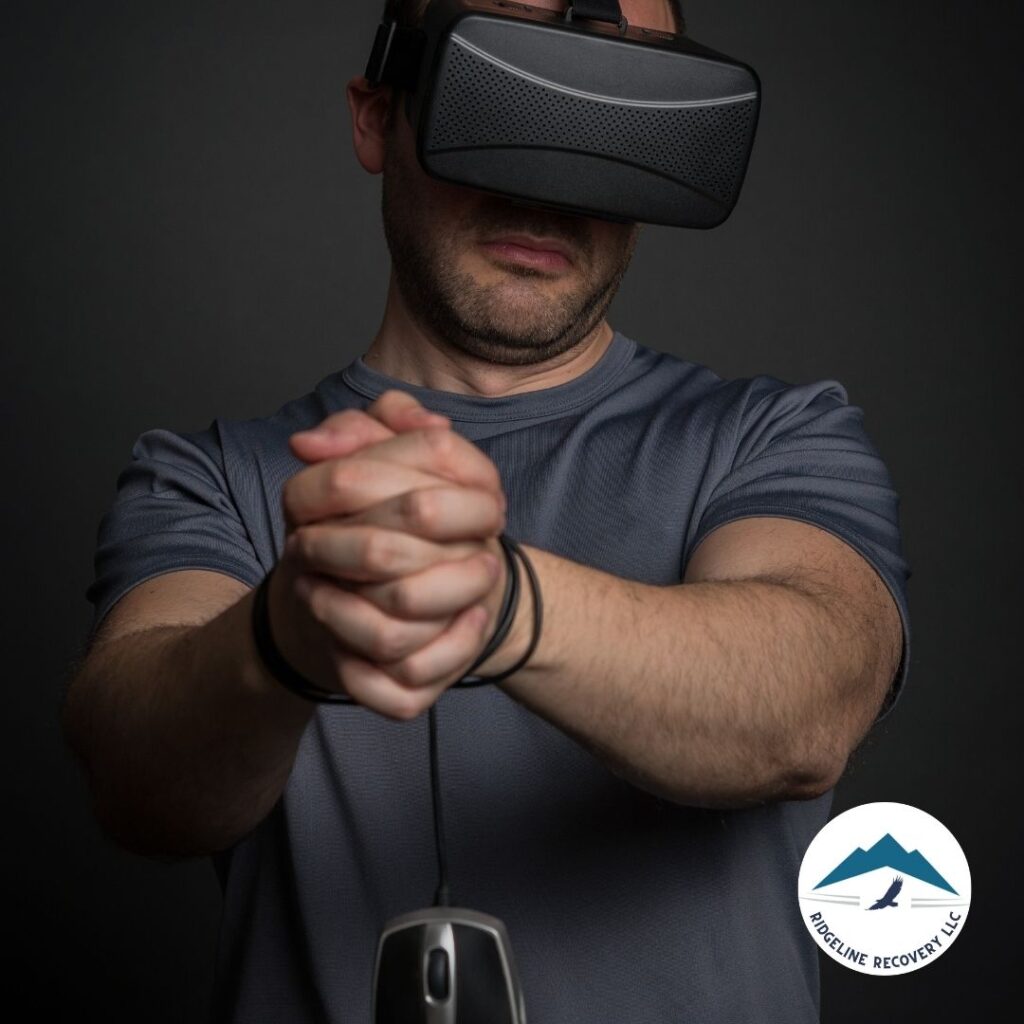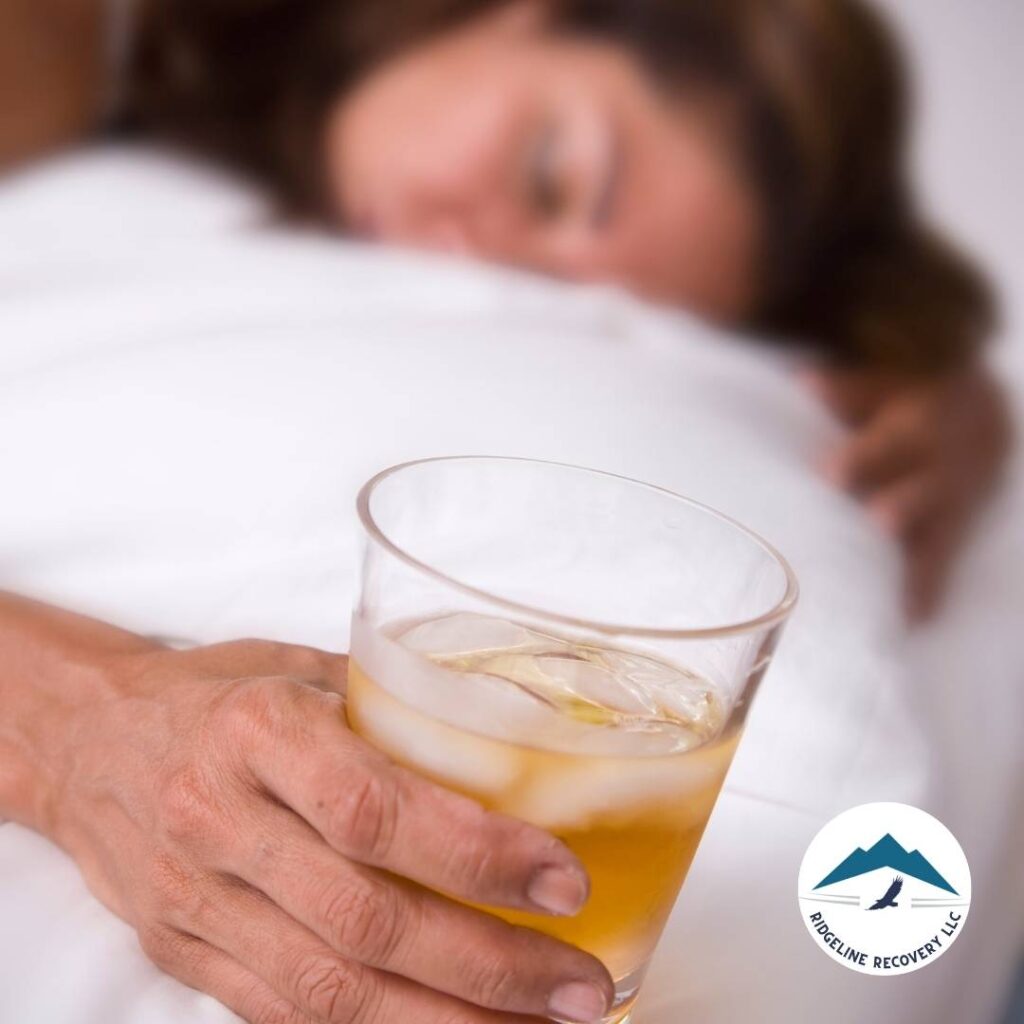When it comes to beating addiction, everyone wants to know: Is addiction therapy really worth it?
It’s not an easy question to answer.
You’re dealing with the reality that addiction is complicated—one therapy method doesn’t fit everyone, and not all “solutions” lead to lasting recovery.
But addiction therapy can make a difference.
So, let’s break down the pros, the cons, and the honest truths about addiction therapy so you can decide if it’s right for you (or someone you care about).
Pros of Addiction Therapy: Why Therapy is a Game-Changer for Many
1. Structure and Accountability: Therapy Keeps You on Track
Think of addiction therapy as your personal guide.
Therapy provides a structure that holds you accountable. Whether it’s one-on-one with a therapist or group therapy, the structure helps you stay on the path.
Imagine knowing you have a mental health therapist near me ready to talk you through cravings and help you resist the urge to relapse. That’s a big part of why people stick with it.
Here’s why structure is crucial:
- Consistency: Routine sessions provide a steady rhythm. You show up, dig deep, and make progress.
- Accountability: Having someone who tracks your progress makes a big difference.
2. A Safe Space to Open Up
In addiction therapy, you get a non-judgmental space.
For many, this is the first time they’ve had a place to unload all the feelings they’ve kept locked up. You can admit the tough stuff—why you turned to substances, the things you’re ashamed of—without fear of judgment.
Therapists, especially those at reputable places like Ridgeline Recovery, are there to listen and guide.
3. Access to Medical and Alternative Treatments
Many therapy options connect you with medical treatments like Vivitrol clinics near me for opioid dependence. For some, medication-assisted therapy (MAT) offers real relief and lets them focus on therapy without constant physical cravings.
What’s Vivitrol? It’s an injectable that blocks the effects of opioids and alcohol, making it a valuable option for those struggling to resist cravings. Combining Vivitrol with counseling services maximizes the effectiveness of both.
4. Support and Community: You Don’t Have to Go It Alone
Therapy often includes a support group component, where people facing the same issues come together. It’s here that many people realize, “I’m not the only one dealing with this.”
In group settings, you see and hear other people’s stories, which creates a sense of community. Whether you’re finding help through addiction recovery near me or meeting online, having a community is essential.
5. Tools for Dealing with Life’s Triggers
Life will test you. Triggers are real, and therapy teaches you how to handle them.
What triggers you? Stress? Loneliness? Social events?
Therapy breaks down how to recognize triggers and how to navigate them. Some tools you’ll pick up:
- Mindfulness Techniques: Learning to pause, breathe, and make intentional choices.
- Emotional Regulation: Recognizing emotions without letting them control you.
- Relapse Prevention: Knowing how to spot early warning signs and take action before things spiral.
Cons of Addiction Therapy: The Realities You Need to Know
1. It’s a Long Process—Don’t Expect Instant Results
Let’s be real. Therapy isn’t a quick fix.
Addiction therapy is a marathon, not a sprint. Expecting fast results often leads to disappointment. The reality? Therapy takes time, commitment, and the willingness to go through some difficult moments.
Some people need weeks, months, or even years to fully overcome their addiction, and that can be hard to accept.
2. Therapy Costs Money
Another big downside for some is the cost. Whether it’s insurance-covered or out-of-pocket, therapy has a price. If you’re considering options like mental health treatment centers near me or addiction recovery Columbus, make sure you understand the costs involved.
How can you navigate this?
- Insurance Check: Contact your insurance to see what’s covered.
- Sliding Scale Fees: Some therapists adjust their fees based on income.
- Group Therapy: Often more affordable than one-on-one sessions.
3. It Forces You to Face the Hard Stuff
Therapy brings things to the surface you might not want to face. Trauma, broken relationships, shame—these are the things that most people bury, not face head-on.
But in therapy, you confront it all.
It’s raw, it’s real, and it’s not always easy. But confronting these things is essential to healing.
4. Stigma: The Misconception That “Therapy is for the Weak”
Despite growing awareness, there’s still a stigma around addiction therapy.
You might have family or friends who don’t understand it, or you might worry about what others will think. This stigma can feel heavy, but it’s essential to remember that therapy is about strength, not weakness.
And look, some of the most successful people in the world are where they are because they faced their issues through therapy.
5. Relapse Risk: Even with Therapy, Relapse Can Happen
Here’s a hard truth: therapy doesn’t eliminate the risk of relapse.
It lowers the chances by equipping you with coping skills, but relapse can still happen. If you go into therapy expecting it to magically erase all cravings, you’re setting yourself up for disappointment.
However, the flip side is that if relapse does happen, therapy prepares you to bounce back stronger.
Finding the Right Type of Therapy for You: Know Your Options
One size doesn’t fit all when it comes to addiction therapy. Here’s a breakdown of therapy options so you can pick what feels right:
Cognitive Behavioral Therapy (CBT)
CBT targets the thought patterns that feed addiction. It helps you recognize and change negative thinking so you can make healthier choices.
Pros: Great for changing behaviors, strong track record
Cons: Requires a commitment to weekly sessions and personal accountability
Dialectical Behavior Therapy (DBT)
Originally designed for those with intense emotions, DBT helps regulate feelings and improve relationships. It’s especially effective if addiction is tied to mental health conditions like depression or anxiety.
Medication-Assisted Therapy (MAT)
MAT uses medications like Vivitrol to control cravings, combined with therapy. It’s an option if physical cravings make it hard to focus on recovery.
Pros: Reduces physical cravings, supports a more stable recovery
Cons: Not a standalone solution—must be paired with therapy for best results

Addressing the Social Aspects of Addiction Therapy
Addiction Therapy isn’t just about an individual breaking a habit; it’s also about reshaping an entire environment that may have fed into addiction. Many people return to environments that aren’t supportive or might even encourage relapse, knowingly or unknowingly. Addressing the social component of addiction therapy services in a personalized way—like including family therapy and group support—is crucial for lasting recovery.
Why Social Support Matters in Addiction Therapy
Addiction is not solely a physical dependency. It’s highly influenced by a person’s social environment. Negative influences, peer pressure, and a lack of supportive relationships can hinder recovery. When social elements are addressed through addiction therapy near me or addiction recovery near me programs, clients have a much stronger chance of maintaining sobriety.
This involves more than weekly therapy sessions. It’s about building a new network of people who understand the challenges, support the journey, and can actively contribute to positive change. Often, therapists will work with clients on creating what’s sometimes called a “sober network”—an environment that promotes accountability and prevents isolation, a common issue in recovery.
Reframing Environmental Triggers in Addiction Therapy
One of the less obvious, but very effective aspects of addiction therapy is understanding and mitigating environmental triggers. Triggers are the people, places, and situations that may have led to or reinforced addictive behaviors. Through addiction therapy services, therapists help clients identify these factors and create strategies to avoid or manage them.
Practical Ways to Address Triggers in Addiction Therapy
For some, it might mean steering clear of particular locations, or possibly relocating if necessary. For others, it might mean changing up routines or spending time with a different social circle. Addiction therapy Columbus providers like Ridgeline Recovery even offer group therapy where participants work through these issues with others facing similar struggles, fostering a collaborative, rather than isolated, approach to recovery.
Holistic Approaches in Addiction Therapy: Beyond the Basics
The field of addiction therapy has grown to include holistic practices as valuable additions to traditional therapy. Many clients now explore approaches like yoga, meditation, and nutrition therapy as part of their recovery journey.
Nutrition and Physical Health in Addiction Therapy
The role of nutrition in addiction recovery is gaining significant attention. Poor diet can exacerbate withdrawal symptoms and impact mental health. As a part of their addiction therapy services, centers may incorporate dietary consultations to help balance clients’ nutritional intake, supporting both mental clarity and physical resilience.
Foods that detox and aid the body’s natural healing processes are often encouraged. This helps the body rebuild after the impact of substance use, and the benefits extend far beyond physical health. Clients report improved focus, mood stabilization, and even reduced cravings when nutrition becomes a component of their therapy.
Mental Health Integration in Addiction Therapy
When clients seek addiction treatment near me or look up mental health services near me, they are often addressing both addiction and underlying mental health issues. Addiction therapy can help uncover and treat co-occurring mental health conditions like anxiety, depression, and PTSD, which are often intertwined with addiction.
This is where services like mental health clinics near me and mental health counselor near me play a crucial role in offering a well-rounded therapy approach. Working through addiction and mental health challenges simultaneously creates a much more sustainable path to recovery.
How Vivitrol Clinics Fit into Addiction Therapy
Vivitrol is a non-addictive, monthly shot that blocks receptors in the brain responsible for the euphoric effect of opioids and alcohol. When combined with addiction therapy, Vivitrol can be highly effective. It’s not a cure-all, but it’s a powerful tool in preventing relapse for individuals who have already detoxed. Ridgeline Recovery offers Vivitrol clinics near me as part of their addiction treatment Columbus programs.
Financial Support and Access to Addiction Therapy
The cost of therapy can be a hurdle, but more facilities are becoming open to different payment options and insurance coverage. If you’re looking into addiction therapy near me and are concerned about the financial aspect, call around. Many facilities accept Blue Cross Blue Shield of Ohio and other insurance plans.
Is 30-Day Rehab Enough?
A common question when looking for addiction therapy services is, “Is 30 days enough?” The short answer: it depends.
Is 30-Day Rehab Enough? Understanding Length of Stay in Addiction Therapy
When people consider addiction therapy or rehab, they often ask whether a 30-day program is enough to fully recover. The answer depends on several factors, including the severity of addiction, any co-occurring mental health issues, and the individual’s environment. While 30 days might be enough for some, longer stays often provide better outcomes. Many rehab centers offer programs lasting 60, 90 days, or even longer for a reason: recovery isn’t one-size-fits-all.
A 30-day stint in addiction therapy near me can be ideal for people with a supportive home environment and minimal co-occurring disorders. However, for those who may be facing more severe addictions or have complicated circumstances, extended programs offer the time needed to build healthy habits, establish effective coping mechanisms, and work on social reintegration strategies. Ridgeline Recovery, for example, designs addiction therapy services around what’s actually needed rather than just a calendar date. After all, addiction recovery is a long-term commitment, not a quick fix.
Comparing Inpatient and Outpatient Addiction Therapy Programs
When considering addiction therapy, people often wonder if inpatient or outpatient treatment is the best choice. Let’s break it down.
Inpatient Addiction Therapy
Inpatient programs offer intensive, round-the-clock care. Patients live on-site and receive full support from medical professionals, therapists, and counselors. Inpatient substance abuse rehab tends to be the best option for individuals with severe addictions, those without a strong support network, or anyone who feels that stepping away from their daily environment would help jumpstart their recovery journey.
Inpatient programs may also provide specialized services, such as access to mental health services and detox facilities. This holistic approach is often necessary for treating complex cases of addiction, particularly when there’s a risk of withdrawal symptoms like delirium tremors or other life-threatening issues that require medical attention.
Outpatient Addiction Therapy
Outpatient programs allow patients to attend addiction therapy sessions, classes, and support groups while still maintaining their regular schedules. This option is ideal for individuals with a supportive environment at home or work. Outpatient programs provide flexibility, cost less, and allow clients to apply learned strategies immediately in real-life scenarios.
Who Should Consider Inpatient vs. Outpatient Addiction Therapy?
If you’re unsure which program suits you, consider the level of addiction, any health complications, and your support system. If you’re dealing with complications like alcohol dementia symptoms or require detox facilities that monitor withdrawal symptoms closely, inpatient might be the way to go. For individuals needing flexibility and continued work or family commitments, outpatient programs offer a viable path.
The Impact of Mental Health on Addiction Therapy Outcomes
Mental health and addiction are frequently intertwined, making it essential to address mental health alongside addiction therapy. For many, mental health issues can be the root cause or a significant factor in substance use. Ignoring mental health while undergoing addiction treatment would only be treating half the problem. That’s why many individuals benefit from having access to mental health services near me, such as those offered by Ridgeline Recovery.
Dual Diagnosis Treatment in Addiction Therapy
Dual diagnosis treatment is a form of addiction therapy that addresses both substance abuse and mental health disorders simultaneously. If an individual suffers from anxiety, depression, or PTSD alongside addiction, therapy for both issues must be integrated into one treatment plan. Specialists trained in dual diagnosis work to ensure that both addiction and mental health are managed in tandem to prevent relapse and promote holistic healing.
The Benefits of Having a Mental Health Therapist on the Team
When an individual suffering from addiction also has access to a mental health therapist, it adds another layer of support. A mental health counselor helps patients explore underlying issues that may have led them to addiction, providing insight into triggers and patterns that, if left unaddressed, could sabotage recovery.
Ridgeline Recovery, for instance, includes mental health counselors as part of its addiction therapy services to ensure patients have well-rounded support.
Medications in Addiction Therapy: Are They Right for You?
Medications like Vivitrol, Suboxone, and Methadone are commonly used in addiction therapy. They aren’t a standalone solution, but they can be a powerful support in preventing relapse and managing cravings. Here’s a look at how each medication works:
Vivitrol in Addiction Therapy
Vivitrol is a non-addictive, once-a-month injection that blocks the brain’s opioid receptors, making it impossible to get high on opioids. This medication can be useful for individuals recovering from opioid addiction, as it helps them avoid relapse while engaging fully in addiction therapy.
Vivitrol is also beneficial for alcohol addiction. By blocking the euphoria that alcohol normally provides, it reduces the desire to drink, especially in moments of stress or weakness. Vivitrol clinics near me offer this option for individuals who’ve gone through detox and are ready to focus on their therapy journey.
Suboxone in Addiction Therapy
Suboxone contains both buprenorphine and naloxone, a combination that reduces cravings for opioids. It’s especially helpful during the initial stages of recovery when the urge to relapse can be intense. However, it’s critical that individuals work closely with medical professionals to ensure safe usage, as Suboxone itself can be addictive if misused.
Methadone Clinics in Addiction Therapy
Methadone is a long-used treatment for opioid dependency. Typically provided in specialized clinics, methadone helps stabilize patients by relieving withdrawal symptoms without inducing a high. Methadone programs are highly regulated and can offer individuals a chance to stabilize while gradually weaning off their dependency.
The Importance of Accountability in Addiction Therapy
Without accountability, addiction recovery can falter. Having a system in place where individuals can be honest, track their progress, and check in with someone who understands their journey is critical. Whether it’s through one-on-one sessions, group meetings, or family therapy, accountability strengthens the resolve to continue therapy, especially during challenging times.
Family Support as Accountability Partners
Addiction is a family disease. Loved ones are often affected just as deeply as the person facing addiction, which is why family therapy is often an integral part of addiction therapy. When family members get involved, it creates a shared responsibility for recovery and establishes a support system that fosters accountability.
Family therapy sessions, facilitated by professionals, offer a safe space for open communication. This helps resolve misunderstandings, address lingering resentment, and rebuild trust—a critical component for long-lasting recovery. Ridgeline Recovery, for instance, integrates family therapy into its addiction therapy services because it understands that healing isn’t limited to the individual but extends to their support network.
Peer Support in Addiction Therapy
Connecting with others who have been through similar experiences can be incredibly powerful. Many people in recovery find support groups like Alcoholics Anonymous or Narcotics Anonymous beneficial, as they provide a safe environment for individuals to express their struggles, celebrate victories, and stay motivated.
Even beyond formal support groups, peer connections formed during rehab or outpatient therapy can act as a support network long after formal therapy ends. This “fellowshipping” aspect, as some call it, becomes a cornerstone in addiction recovery, allowing individuals to reach out during challenging times rather than facing their struggles alone.

Exploring Adventure Therapy in Addiction Recovery
Traditional therapy sessions aren’t the only effective approaches in addiction therapy. Adventure therapy, for example, involves physical activities like hiking, rock climbing, and team-building exercises that provide a unique way to engage with recovery.
Why Adventure Therapy Works
Adventure therapy isn’t just about physical activity. It’s about stepping out of comfort zones, building confidence, and creating memorable experiences. For individuals struggling with substance use disorder, these activities can create a tangible sense of achievement and build resilience. Nature-based experiences, such as exploring the Appalachian mountains of Ohio, connect individuals with their environment in a way that encourages mindfulness and grounding.
Adventure therapy is part of a larger movement toward holistic recovery, proving that addiction therapy services can be just as effective outside the therapy room as within it.
Detox Facilities and Medical Supervision in Addiction Therapy
Before addiction therapy can begin in earnest, some people need to go through detox. Detox facilities provide a safe environment for withdrawal, which can be a difficult and often dangerous process without medical oversight.
The Role of Detox in Addiction Therapy
Detox is about removing substances from the body, but it’s not a cure for addiction. It’s the first step, one that prepares individuals for the real work of therapy. Ridgeline Recovery offers detox programs near me that allow individuals to transition seamlessly from detox to therapy, ensuring no gap in their support system. Detox is crucial for those dealing with acute withdrawal symptoms, providing the medical attention necessary for a safe start.
Debunking Myths About Addiction Therapy
Misconceptions about addiction therapy often prevent people from seeking help. Some believe that addiction therapy requires being “broken” or that it’s too rigid. The reality? Addiction therapy is flexible, adaptive, and designed to meet individuals where they are.
Frequently Asked Questions
Q: How long does addiction therapy take?
A: Addiction therapy isn’t one-size-fits-all. Some people find significant improvement in weeks, while others benefit from years of support.
Q: Is addiction therapy covered by insurance?
A: Many insurance plans cover addiction therapy, but the details vary. Call Ridgeline Recovery to discuss options.
Q: Can I do therapy online?
A: Yes, teletherapy has become increasingly popular. Online therapy can offer the same benefits as in-person sessions, making it more accessible.
Q: What if I relapse? Does that mean therapy isn’t working?
A: Relapse doesn’t mean therapy failed. It’s a signal to dig deeper and adjust strategies. Many people find that therapy helps them recover faster after a relapse.
Q: What’s the difference between individual and group therapy?
A: Individual therapy offers a one-on-one setting, while group therapy provides community support. Many people benefit from doing both simultaneously.
The Bottom Line: Weighing the Pros and Cons of Addiction Therapy
So, should you consider addiction therapy? Here’s the real talk:
If you want a quick fix, therapy probably isn’t the answer. Addiction therapy is a commitment, and it’s not always smooth. But it offers something incredibly valuable—a sustainable path to recovery.
For anyone struggling with addiction, therapy isn’t just a treatment. It’s a tool that equips you to rebuild your life, reconnect with the people you love, and rediscover your potential.
If you’re ready to start, Ridgeline Recovery is here. Give us a call at 614-618-5000 or visit us at 491 Georgesville Rd, Columbus, OH 43228. We’ll work with you to find the approach that fits your life and goals.
Call Us Now!
If you or a loved one is struggling with heroin or alcohol dependency, reach out to Ridgeline Recovery Center in Columbus, Ohio, today. At Ridgeline Recovery, we offer a path to hope and healing. Our comprehensive Addiction Recovery services include Addiction Therapy, Addiction Treatment, Vivitrol Clinic and specialized Mental Health Services designed to support your journey to recovery.
We provide Aftercare Programs and Peer Support to ensure you have ongoing assistance after treatment. Our dedicated team offers Case Management and Child Services for those needing extra support. For individuals who prefer a faith-based approach, we offer Faith-Based Recovery options.
Our programs feature Group and Individual Counseling, along with Medication-Assisted Treatment (MAT) to address your unique needs. We also have an Intensive Outpatient Program (IOP) and a Partial Hospitalization Program (PHP) for more structured care.
Our team includes Registered Nurse Services, Psychiatric Services, and Therapeutic Behavioral Services (TBS) to provide comprehensive support throughout your recovery process. We work with various Insurance Coverage plans to help you access the care you need.
Don’t wait—contact us now to start your journey toward a brighter future with Ridgeline Recovery.
For more stories and information Contact Us, visit our Blog page and Stories & Highlights.






